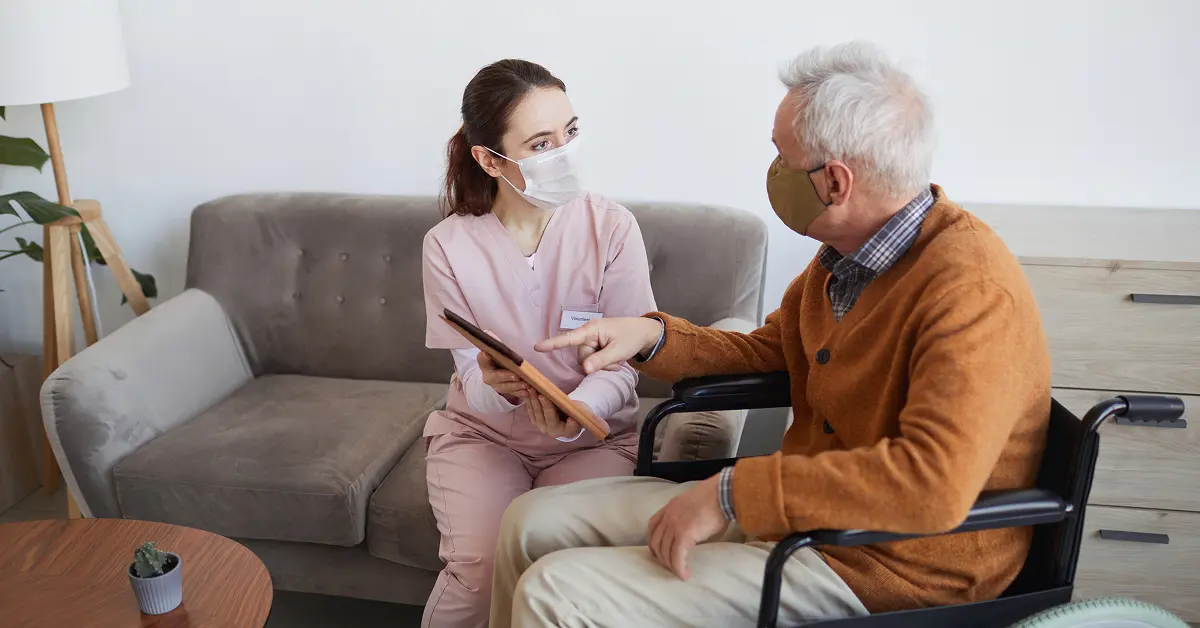As our parents age, they often prefer to stay in the comfort of their own homes rather than move to assisted living facilities. However, growing old brings its own set of challenges, especially in India, where nuclear families and working professionals may find it difficult to provide round-the-clock care. Recognising the right time to bring in senior care at home can ensure your elderly parent receives the support they need—safely and respectfully.
Here are the key signs that your elderly parent may require professional home Senior Care Services
Difficulty in Managing Daily Activities
If your parent is struggling with basic tasks like bathing, dressing, grooming, cooking, or even walking around the house, it’s a strong sign they need support. This condition, known as reduced Activities of Daily Living (ADLs), is one of the primary indicators for elder care at home.
Many Indian seniors hide their struggles to avoid being a burden. If you notice dirty laundry piling up, dishes unwashed, or signs of skipped meals, it’s time to consider home care services that can assist with these everyday tasks.
Frequent Falls or Physical Injuries
Have there been incidents of tripping, slipping in the bathroom, or unexplained bruises? Seniors are at a higher risk for falls due to muscle weakness, vision problems, or balance issues. In India, where most homes have hard floors and staircases, a simple fall can lead to serious injuries like fractures or head trauma.
Hiring an in-home caregiver ensures someone is always there to assist your parent with mobility, ensuring they move around safely.
Memory Loss or Cognitive Decline
Forgetfulness is common with age, but frequent memory lapses, confusion, or misplacing things could point to early signs of dementia or Alzheimer’s disease. If your parent forgets to turn off the gas stove, leaves the door unlocked, or can’t remember important dates or names, it’s a red flag.
Professional caregivers trained in cognitive support can help seniors manage their condition, keep them safe, and delay the progression of memory-related diseases.
Neglected Medication Routines
Many elderly Indians suffer from chronic conditions like diabetes, hypertension, or arthritis, requiring daily medication. Missing doses, taking the wrong pills, or failing to refill prescriptions can have dangerous consequences.
If you notice unused medicines, confusion about dosages, or expired strips lying around, it’s a clear sign your parent needs medication management support—a service most senior home care professionals are trained to provide.
Poor Personal Hygiene
Unkempt appearance, body odour, long nails, and dirty clothes are more than just cosmetic issues—they may indicate that your parent is unable to maintain personal hygiene due to physical weakness or mental health issues like depression.
Home caregivers can assist with bathing, grooming, and other hygiene tasks with dignity, helping your parent maintain their self-esteem.
Signs of Isolation or Depression
Loneliness is a silent epidemic among Indian seniors, especially when their children live in other cities or countries. If your parent seems unusually quiet, disinterested in activities they once enjoyed, or expresses feelings of sadness, these may be signs of depression.
A home care companion can provide regular interaction, engage your parent in meaningful activities, and reduce emotional stress through companionship.
Unpaid Bills and Financial Mismanagement
If you find unpaid electricity bills, unopened bank statements, or confusion over ATM transactions, it might be because your parent is finding it hard to keep up with their finances.
Senior caregivers don’t handle finances directly, but they can remind your parent to pay bills on time, accompany them to the bank, and report any unusual behaviour to family members.
Changes in Eating Habits or Weight Loss
Noticeable weight loss, expired food in the fridge, or reliance on instant or packaged food may signal an issue. Many elderly Indians avoid cooking due to physical limitations or lack of appetite.
In-home caregivers can prepare fresh, nutritious meals tailored to health conditions like high blood pressure or diabetes, ensuring your parent gets a balanced diet every day.
Disorientation or Wandering
If your parent has started getting lost in familiar surroundings or becomes confused about time and place, it could indicate cognitive decline. In extreme cases, seniors may wander away from home, especially those with dementia.
Senior care professionals are trained to handle such situations and can create a safer living environment for such high-risk individuals.
Caregiver Burnout in the Family
If a family member is currently providing care and feeling overwhelmed, exhausted, or emotionally drained, it may be time to seek professional help. Caregiver burnout is real, and ignoring it can lead to poor care for the senior and health issues for the caregiver.
Engaging a professional senior care service can ease the burden, allowing family members to spend quality time with their loved one without the stress of full-time caregiving.
Benefits of At-Home Senior Care in India
Recognising these signs early allows families to implement support systems that help seniors age with grace and dignity. Some key benefits of professional elder care at home include:
- Comfort of Familiar Surroundings: No need for relocation to a care facility.
- Customised Care Plans: Based on medical history and personal needs.
- 24x7 Monitoring: Ideal for seniors who need round-the-clock attention.
- Emotional Well-being: Companionship care boosts morale and mental health.
- Family Involvement: Families can remain involved without being overwhelmed.
Final Thoughts
It’s never easy to admit that your parent may need help. In Indian households, there’s often hesitation around bringing a non-family member into the home. However, professional senior care is not about replacing family—it’s about enhancing the quality of life for your loved one and giving them the independence and dignity they deserve.
Being proactive rather than reactive can prevent emergencies and ensure your parent continues to live a safe, healthy, and fulfilling life at home.
Need Help Deciding?
Speak to a trusted senior care service provider near you to understand your options. Many offer free assessments and customised care plans that suit your family's needs and budget.
Contents
- Difficulty in Managing Daily Activities
- Frequent Falls or Physical Injuries
- Memory Loss or Cognitive Decline
- Neglected Medication Routines
- Poor Personal Hygiene
- Signs of Isolation or Depression
- Unpaid Bills and Financial Mismanagement
- Changes in Eating Habits or Weight Loss
- Disorientation or Wandering
- Caregiver Burnout in the Family
- Benefits of At-Home Senior Care in India
- Final Thoughts
Our 24*7 services
Latest Posts
- What Is Respite Care and Why Is It Important
- Affordable home care for senior citizens in India
- Caring for Seniors with Dementia or Alzheimer's at Home
- Senior Caregiving A Guide for Every Family
- How to Write a Caregiver Resume That Gets You Hired
- How Care After Hospital Discharge Speeds Up Recovery at Home
- How to Get Home Health Care for Seniors Through Medicare
- What Does a Senior Citizen Caregiver Really Do at Home
- How to Care for Elderly Parents with Alzheimer’s or Dementia
- How to Get 24-Hour Care for Seniors at Home


